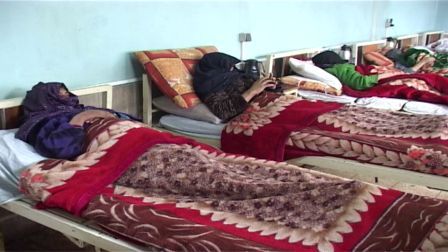Afghanistan is among the countries in the world that suffer from a high burden of tuberculosis - more than 15,000 Afghans die each year because of the disease.
Addressing a ceremony to mark the World Tuberculosis Day on Tuesday, Chief Abdullah Abdullah said that political issues have caused the government to pay less heed for improving health problems in the country.
He added the government will focus on easing the issues facing the Afghan people.
According World Health Organization, the burden of tuberculosis (TB) is increasing in Afghanistan, with an estimated 61 000 people infected annually.
Those most at risk for contracting tuberculosis include women and children, poor and malnourished people, refugees and internally displaced persons and the elderly. Afghan Women in Afghanistan are particularly vulnerable to the disease as they constitute two thirds of all TB patients.
"Addressing issues of Tuberculosis is one of the main priorities of the ministry," said Health Minister Feruzuddin Feruz. "The ministry singly cannot control the TB disease since it is directly related to poverty, and therefore, fighting against poverty requires intergovernmental cooperation."
At the event, the representative of UNDP has said that they are committed to work alongside the Afghan government and partners to address these social issues through comprehensive approach of policy and capacity development programs to ensure equal rights and access to all services.
Tuberculosis is an infectious disease most often affecting the lungs. The symptoms of active pulmonary TB include cough (sometimes with sputum or blood), fatigue, loss of appetite, weight loss, fever, chills and night sweats.
LINK: https://www.ansarpress.com/english/9851
TAGS:































 British coronavirus vaccine: Human trials to include 10,000
British coronavirus vaccine: Human trials to include 10,000




